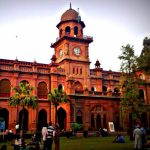When the Higher Education Commission was established and I was appointed as its founding chairman in 2002, there were no Pakistani universities in the top 500 of the world according to the Times Higher Education (UK) rankings. Then a miracle happened. Within a short period of six years we succeeded in having four universities ranked in the top 300, 400 and 500 of the world. These included the National University of Science and Technology (NUST, Islamabad) at a very respectable 273 and University of Engineering and Technology (UET, Lahore) at 281.
This happened because of a razor-sharp focus on the quality of education and research through a number of carefully planned policies and quality assurance measure. Such remarkable progress in such a short time is unprecedented in the history of the world and was applauded by top experts everywhere.
A neutral external review of the higher education system of Pakistan was carried out in 2008 by the chairman of the UN Commission on Science, Technology and Development, Prof Michael Rode of Austria. He concluded that: “In no other country has the higher education sector seen such spectacular positive developments as that in Pakistan during the last six years.” Thomson Reuters, the world’s leading organization that has been associated with the publication of the Web of Science and international citation statistics, compared the quality of research publications from Pakistan to those from Brazil, Russia, India and China (BRIC) and concluded that the rate of increase in highly cited articles from Pakistan far exceeded that from any of the BRIC countries.
After I resigned and left the Higher Education Commission, the support to the HEC was not continued at the same trajectory as in its first six years, and our universities began to collapse with the result that, alas, there are none today ranked among the top 500 in the Times Higher Education (UK) rankings.
Also Read: Top 10 educational websites to teach you for free!
The key challenges that we addressed in the first decade of the HEC were increasing access to higher education, improving quality, providing relevant education needed for socio-economic development, and focusing our efforts on research, innovation and entrepreneurship. Access was increased from 2.6 percent of relevant age group benefitting from higher education in year 2002 to over 7 percent by 2008.
To improve quality, many significant measures were taken. The most important of these was focused on high quality faculty development. Thousands of our brightest students were trained in top universities abroad at the PhD level and attracted back through high salaried jobs under the newly introduced tenure track system, and liberal research funds. To make education relevant to national needs and international demands, all curricula were revised thrice in the six-year period between 2002 and 2008 in consultation with experts from academia and industry/agriculture.
To promote innovation and entrepreneurship technology parks were established in many universities and special programmes initiated for university-industry joint projects. A huge digital library was set up and universities connected by high speed internet. A satellite (Paksat 1) was placed in space, a part of which was used for educational programmes. Endowment funds made available in computer science institutions across the country. The investments were made possible because I succeeded in persuading former president Musharraf to invest heavily in science and in higher education with the result that there was a 6000 percent increase in the development budget of the Ministry of Science and Technology and a 3500 percent increase in the development budget of higher education.
The last three years have been chaotic for the higher education sector. It is now time to get back on track. The most important programme that needs to be revived is that of faculty development. At present, the ratio of PhD level faculty to students is about 1:100 whereas it should be 1:20, so we need to induct at least an additional 50,000 faculty members with PhD degrees into our universities. Therefore, a massive programme for identifying our brightest young men and women and sending them abroad for training needs to be initiated.
The tenure track system introduced by us in 2005 is a contractual system of appointments through which there are six independent assessments of foreign experts before grant of tenure, two at each of the three levels as assistant, associate and full professor levels. However, it was not properly implemented, and currently there are two systems existing in our universities which causes chaos and discontent. This issue needs to be adequately addressed.
Another major problem is the quality of undergraduate education in our colleges and universities. The standards are pathetic, largely because the quality of faculty is poor. Even faculty members with PhD degrees from good universities often have a poor command of the basics, so that they are unable to impart proper knowledge to students. One cannot have quality research institutions unless the basic knowledge deficiencies in the faculty members are properly addressed.
The flag-bearer research support programme, the National Research Programme for Universities (NRPU), was decimated during the last three years, and only about 90 projects were funded against some 4000 pending applications, although huge funds were available. This caused havoc to research in universities, especially amongst the young faculty members, many of whom chose to leave the country rather than prolonging the agony in the prevailing barren research environment. This programme needs to be fully revived. Many articles have been written about the destruction caused by the poorly designed undergraduate and postgraduate policies. These need to be revisited and sensible policies introduced.
The private sector has a very important role to play in the training of our bright young men and women. It was on my proposal in 2004 that the government had agreed to fund sizeable projects in private sector not-for-profit universities and LUMS was the first beneficiary of such a government development project. Unfortunately, this policy was discontinued subsequently, and it needs to be revived.
Also Read: ‘Improve the existing system instead’, Senate rejects bill to establish a new university in PM house
A number of foreign engineering universities are now being set up in Pakistan, largely in collaboration with Austria and China. The first of these, the Pak Austria Fachhochschule in Haripur Hazara, is functional with 100 percent PhD level faculty. A second is under construction in Sialkot. The heart of these universities is a technology park devoted to developing high-tech products for industry, so that our exports in high value-added goods could grow exponentially. A network of such high quality universities needs to be set up so that we can migrate to a strong technology-driven knowledge economy.
Natural resources now have diminishing importance. It is our ability to formulate suitable policies to unleash the creative potential of our youth that will determine our future.

Dr. Atta ur Rehman
Founding Chairman HEC, Chairman PM National Task Force on Science and Technology, Former Minister
He can be reached at: ibne_sina@hotmail.com
![]()





